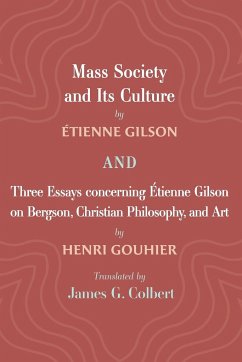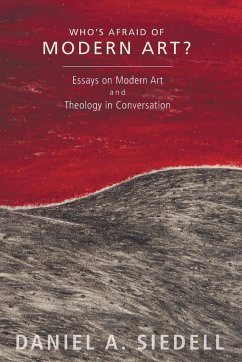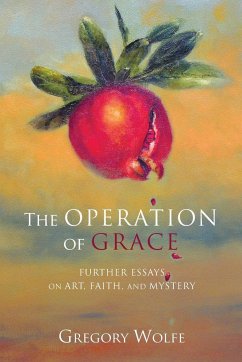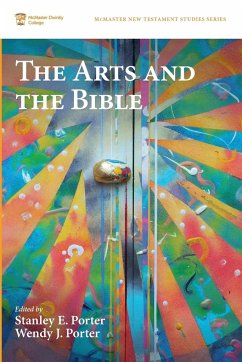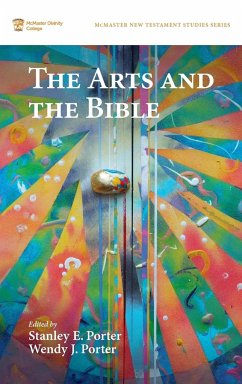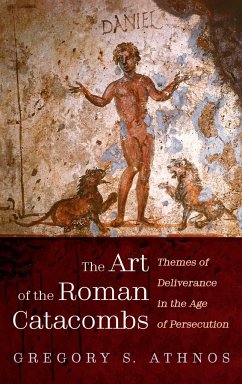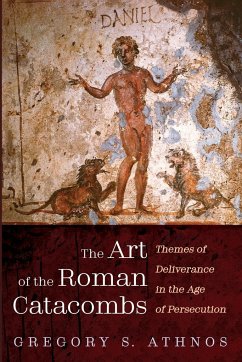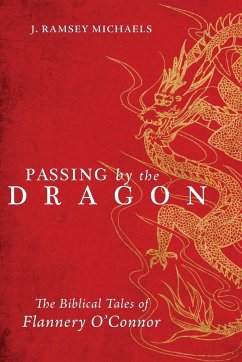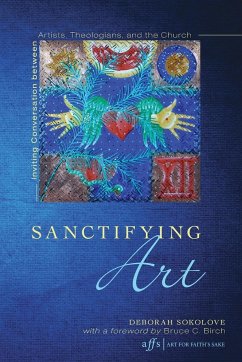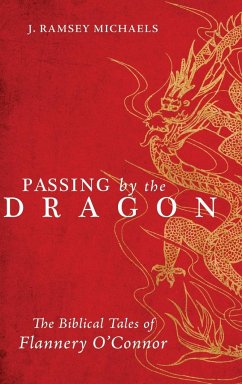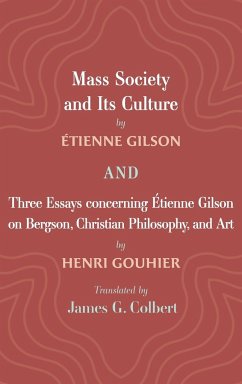
Mass Society and Its Culture, and Three Essays concerning Etienne Gilson on Bergson, Christian Philosophy, and Art
Versandkostenfrei!
Versandfertig in 1-2 Wochen
33,99 €
inkl. MwSt.
Weitere Ausgaben:

PAYBACK Punkte
17 °P sammeln!
A medievalist and defender of the notion of Christian philosophy, Etienne Gilson had a lifelong interest in the philosophy of art. He questioned whether what is reproduced as art in contemporary society is art at all. This is not a simple issue. A cheap version of a novel is still a novel. A picture of a statue is not a statue, nor indeed is a photograph of a painting a painting. Recorded music has particular complications. The organizer of an industrial assembly line is neither an artist nor an artisan. Yet, thanks to such mass production, a much broader population has knowledge of artworks t...
A medievalist and defender of the notion of Christian philosophy, Etienne Gilson had a lifelong interest in the philosophy of art. He questioned whether what is reproduced as art in contemporary society is art at all. This is not a simple issue. A cheap version of a novel is still a novel. A picture of a statue is not a statue, nor indeed is a photograph of a painting a painting. Recorded music has particular complications. The organizer of an industrial assembly line is neither an artist nor an artisan. Yet, thanks to such mass production, a much broader population has knowledge of artworks than would otherwise be possible. Religions must minister to mass societies and provide appropriate liturgies. But in the process, there is a danger of misrepresenting complex religious teachings. At the end of his own life, Henri Gouhier, Gilson's first doctoral student, prepared three essays on Gilson. The first, on Bergson, gives a sense of Gilson's formation in early twentieth-century French philosophy. The second reconstructs the development of the notion of Christian philosophy and the heated controversy it provoked. Finally, Gouhier presents Gilson's general philosophy of art and gives a helpful framework to Gilson's comments on art in a mass society.





